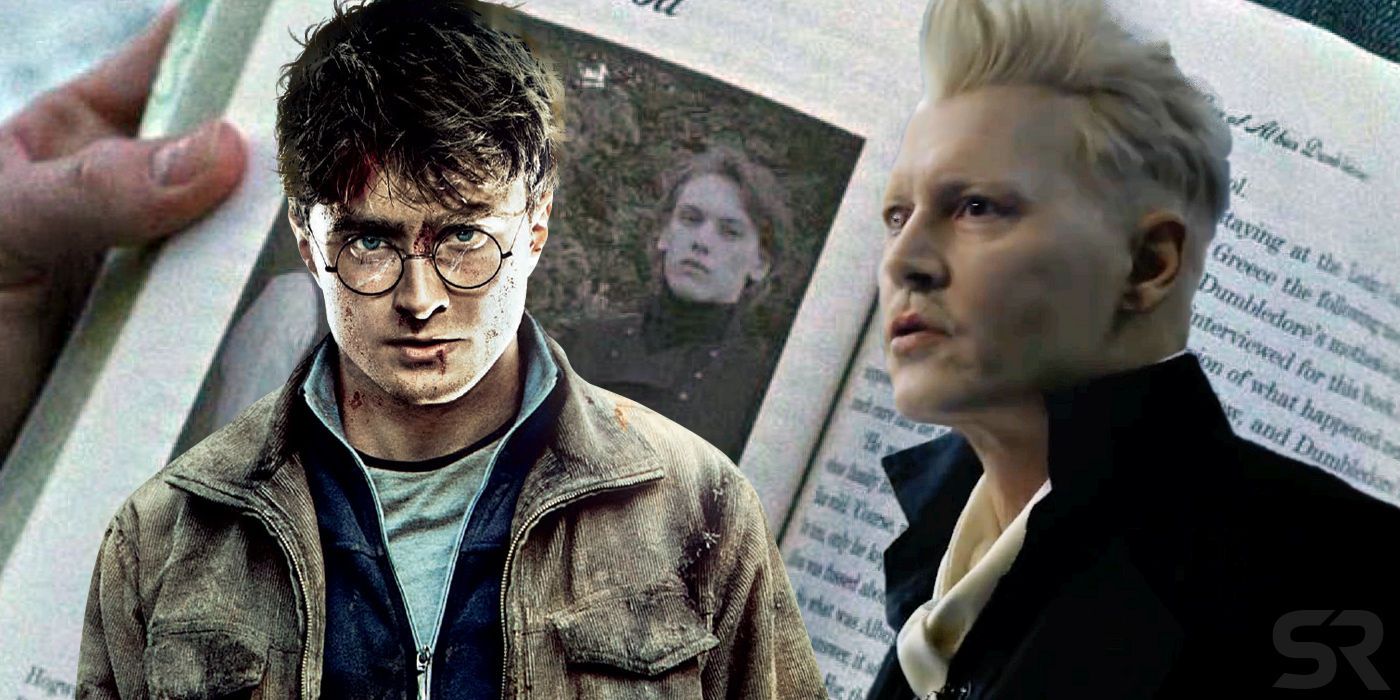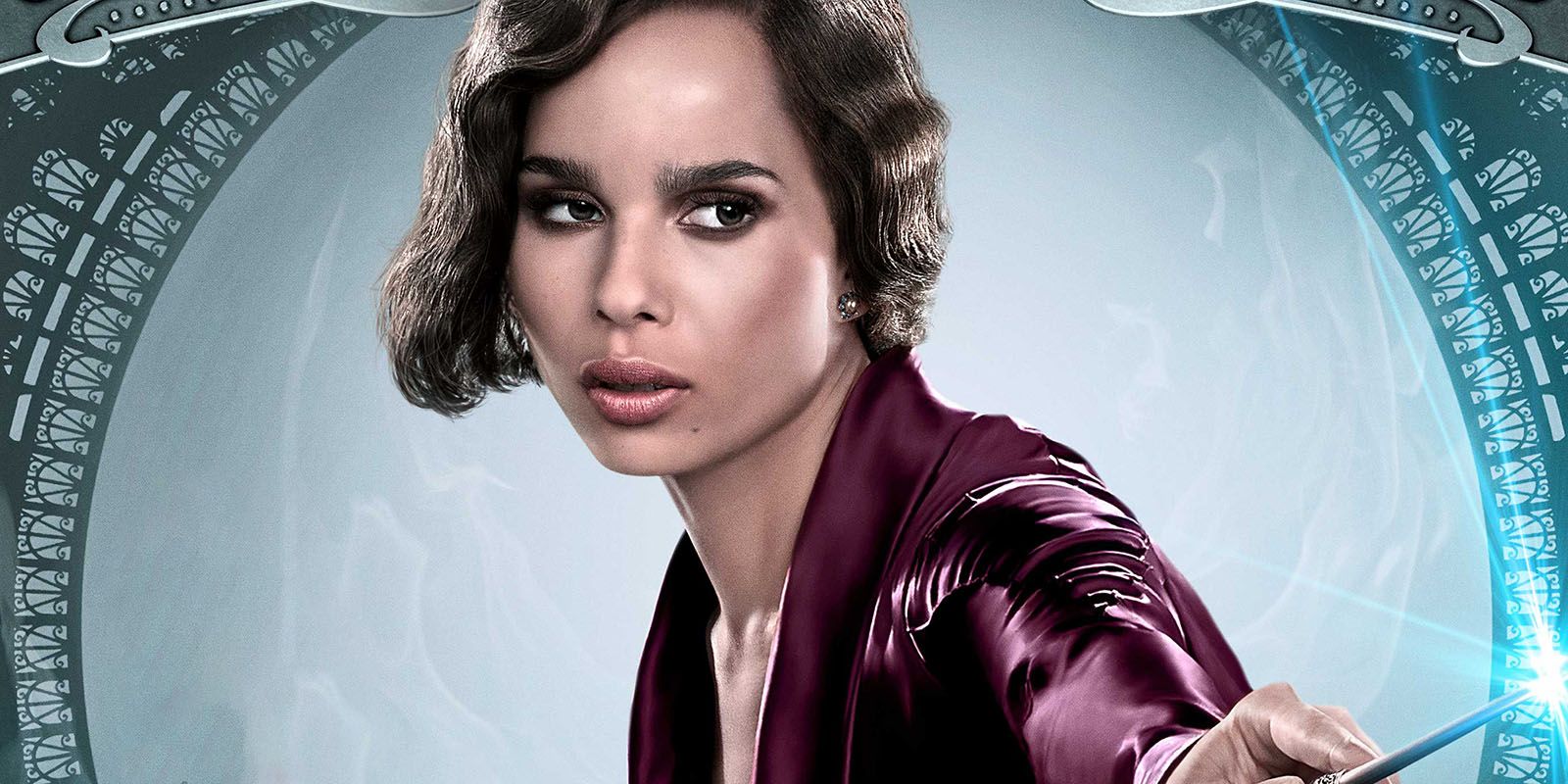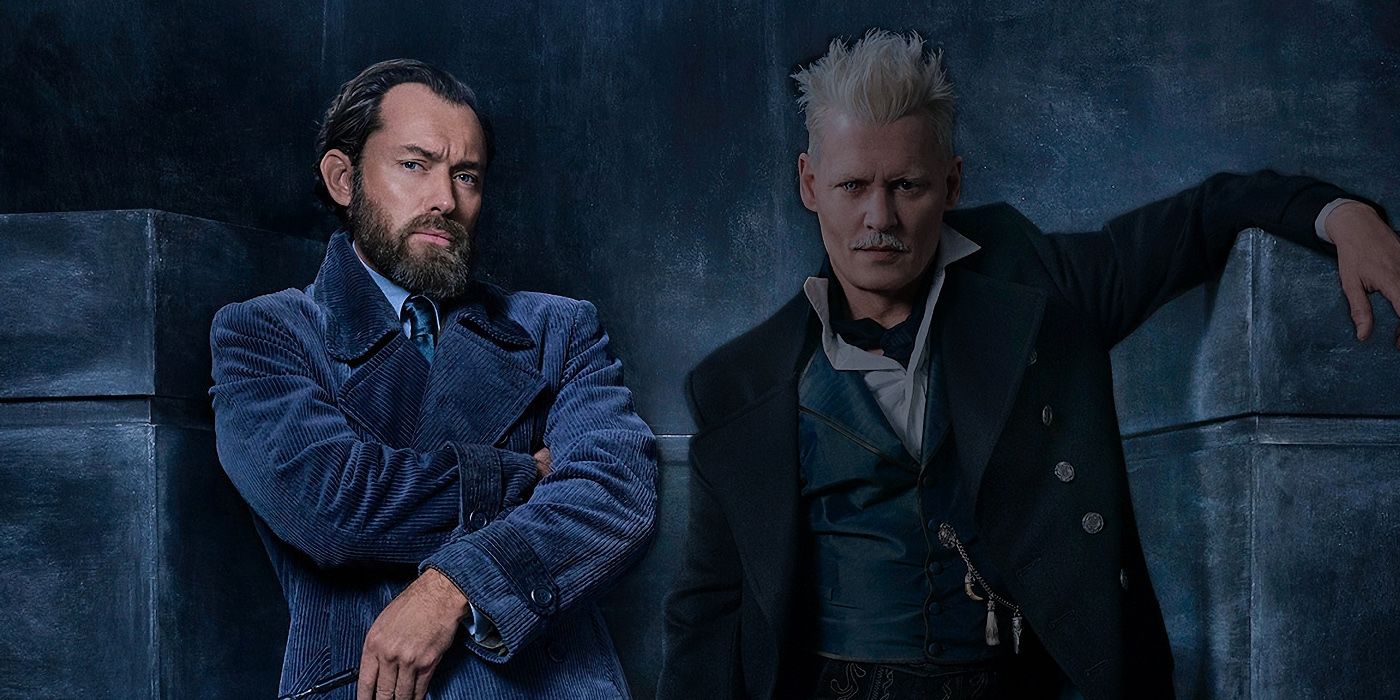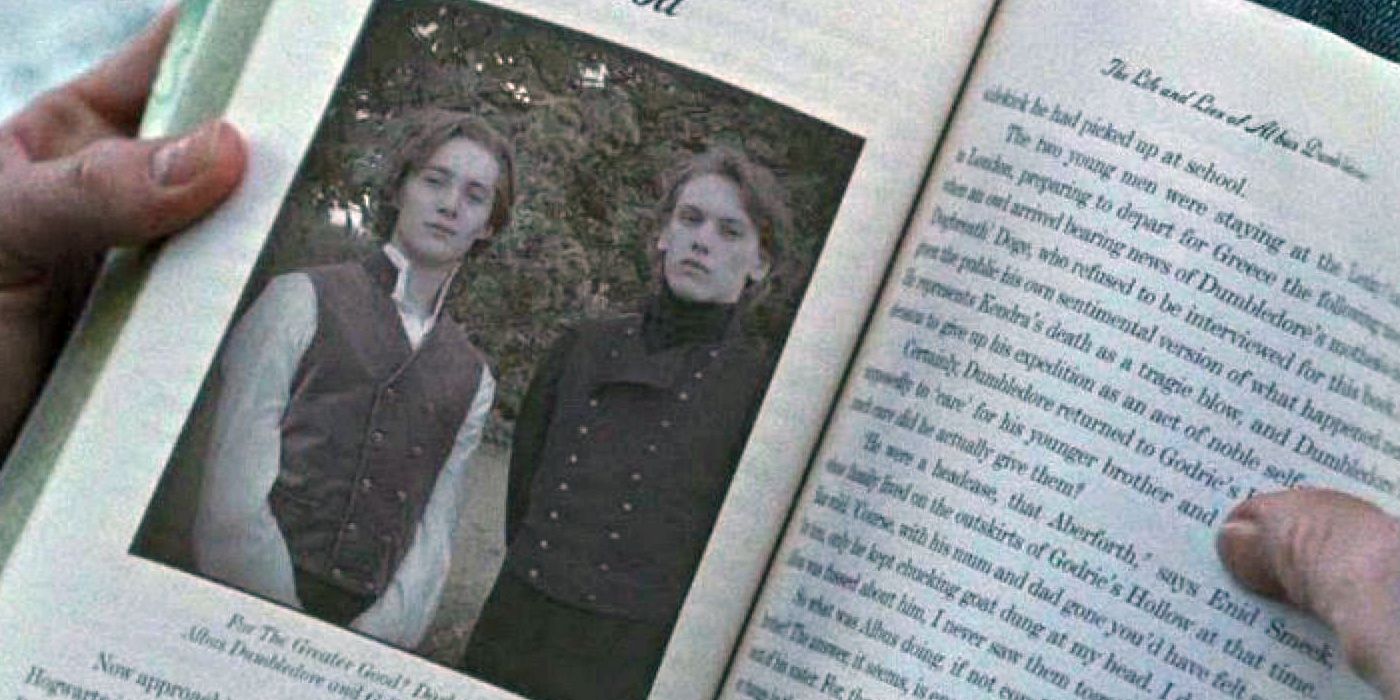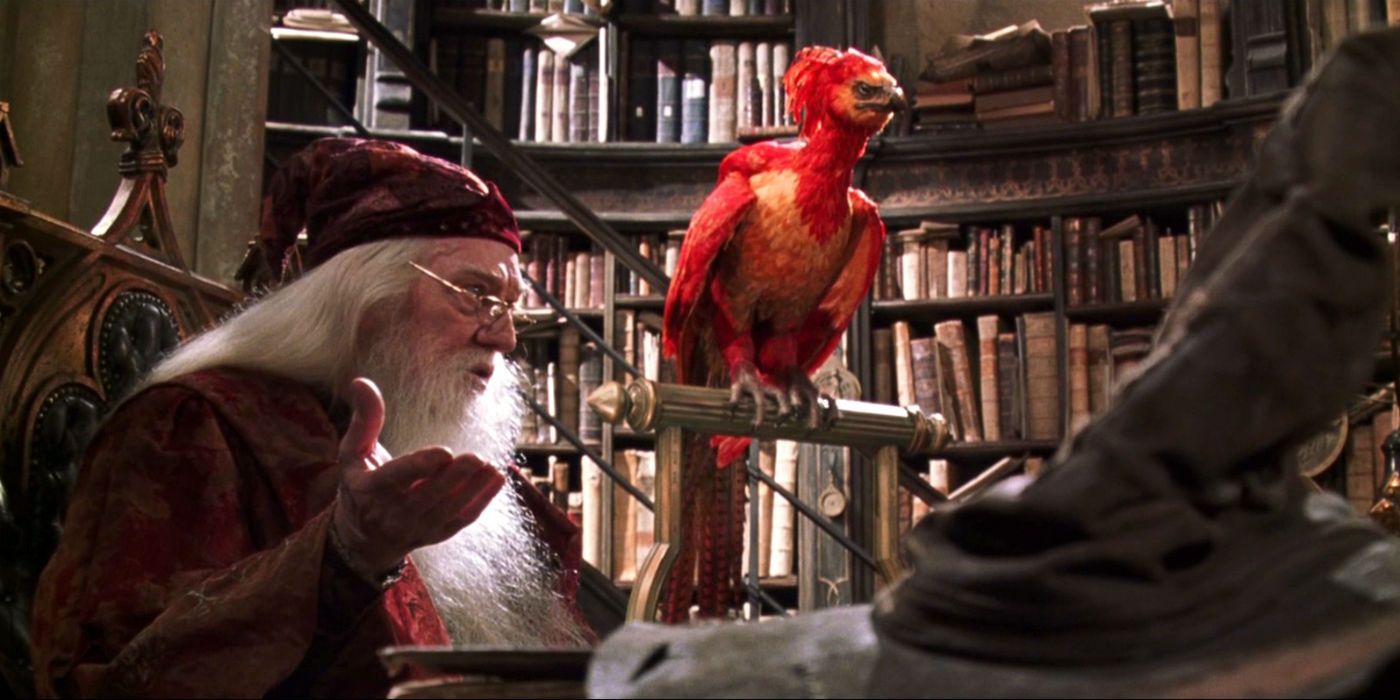Fantastic Beasts: The Crimes of Grindelwald actually improved on some areas of J.K. Rowling's Harry Potter canon. Second in the Fantastic Beasts series, the sequel sees the battle against Grindelwald escalate, with characters forced to choose sides in the coming war. Naturally, given these movies are part of Rowling's meticulously-crafted Wizarding World franchise, a lot of attention has focused in on just how these stories affect the canon.
The Fantastic Beasts films were, at best, stories Rowling never expected to tell. After all, the Harry Potter prequel series only began to take shape when Warner Bros. approached the author with the idea of expanding on an in-universe school textbook she'd published for comic relief. As a result, these Fantastic Beasts films involve a number of significant retcons - and, unfortunately, the occasional continuity error. The most glaring has been the fact that Professor McGonagall apparently taught Newt Scamander years before she should have even been born.
Related: Fantastic Beasts' Biggest Plot Hole Is Definitely The Elder Wand
But it's unwise to underestimate an author of J.K. Rowling's caliber. Some of the changes she's made to her canon are significant improvements, adding new elements to the franchise's history and developing ideas teased in earlier books and films. Here, we'll look at some of the best examples.
- This Page: Sexism and the Blood Pact
- Next Page: Grindelwald's Manipulation - and the Order of the Phoenix
Sexism in Wizarding Families
One of the most fascinating characters in Fantastic Beasts: The Crimes of Grindelwald is Leta Lestrange, a tortured young witch who struggles to deal with the darkness she believes lies within her. The Lestrange family is one of the darkest in the wizarding world, and they're obsessed with the purity of their blood. That's why Corvus Lestrange keeps a unique family tree, one that names all the men and has flowers representing all the women. Given this appears to be quite an old artifact, it's an illustration of just how these Pureblood wizarding families view women. Men are important, named on the family tree, part of the line of succession; women, on the other hand, are little more than adornments, to be admired for their beauty and married off to Pureblood men in order to bind the different wizarding families together.
This is the first time there's been any strong indication of casual sexism in the wizarding world, but it fits neatly with everything Rowling has established before. Even Muggle legends treat witches and wizards differently, with female magic-users expected to be enchantresses and seductresses. A close reading of the Harry Potter books suggests that there were still problems with sexism at the time of Harry Potter. Witches and wizards are still expected to master different skills, and there are no known examples of male wizards with a proficiency for Love Potions. Notice that none of Harry's Defense Against the Dark Arts teachers were female, and there seem to have been more men among the Aurors than women.
Related: The Biggest Letdowns Of Fantastic Beasts: The Crimes of Grindelwald
This subtly reinterprets a couple of key elements of Harry Potter lore. Firstly, it adds a delicious irony to the fact that the most prominent Lestrange in Voldemort's ranks was Bellatrix - a woman. Secondly, it reinterprets Draco Malfoy's frustration with Hermione; not only is he angry that a "Mudblood" is smarter than him, but she's a woman to boot. Hermione's ultimate ascension to the role of Minister for Magic was presumably a historic moment for women's rights in the wizarding world.
Dumbledore and Grindelwald's Blood Pact
The bond between Albus Dumbledore and Gellert Grindelwald has fascinated Harry Potter fans ever since it was first revealed in Harry Potter and the Deathly Hallows. Grindelwald had been tied to the rise of Nazism in Europe ever since he was first mentioned. It's no coincidence that he was defeated in 1945, the year WWII ended. As such, the idea that the young Dumbledore was drawn to a charismatic Nazi was deeply disturbing, and it's no surprise it left Harry reeling. But Fantastic Beasts: The Crimes of Grindelwald adds another element to this - a mysterious Blood Pact forged between the two when they were just teenagers. Although Rowling is yet to clarify what exactly the Blood Pact means, it appears that neither can act directly against the other.
This fits surprisingly well with Harry Potter canon. According to Harry Potter and the Deathly Hallows, the young Albus and Gellert parted ways in a violent exchange of magic when Grindelwald was confronted by Albus's brother, Aberforth. Suddenly this three-way Wizard's Duel becomes much more interesting, because any Killing Curses unleashed by Albus and Grindelwald would have a serious risk of backfiring. It's hardly a surprise that poor Ariana Dumbledore was caught in the crossfire, and died.
This subtly redeems Dumbledore's story in the Fantastic Beasts saga. No longer is he watching from the sidelines, pulling strings but refusing to intervene directly because he's still in love with Grindelwald. Instead, according to the screenplay, he bitterly regrets the Blood Pact, and is presumably eager to step in personally. No doubt Albus Dumbledore will dedicate himself to breaking the power of the Blood Pact once and for all, but it will take some years for him to accomplish his goal. Either that, or he'll find a way to work around it.
Page 2 of 2: Grindelwald's Manipulation - and the Order of the Phoenix
Grindelwald's Manipulation (And Real Goals?)
It's increasingly beginning to look as though the young Dumbledore was manipulated by Grindelwald. It had always seemed to be a strange coincidence that Grindelwald had found his way to the one wizard who had the potential to defeat him; the fact he took a Blood Oath with Dumbledore makes that look even more suspect. Grindelwald's fascination with Obscurials makes this seem even more unlikely, considering the Dumbledore line is now confirmed to have produced two of them.
The Fantastic Beasts films have consistently demonstrated that Grindelwald is a master manipulator with a silver tongue; notice that MACUSA thinks the best way to beat him is to cut his tongue out. He seems to focus in on specific targets, sensing an opponent and finding just the right words - notice how carefully he manipulates both Credence and Queenie. Could he have done the same with the young Albus Dumbledore?
Related: Fantastic Beasts: The Crimes of Grindelwald's Unanswered Questions
The screenplay for Fantastic Beasts and Where to Find Them hints that Grindelwald is not above grooming someone in order to get them on his side. There's one scene in which Grindelwald, while in the guise of Graves, attempts to persuade Credence to bend to his will.
GRAVES gently, almost seductively, moves his thumb across the cuts, healing them instantly. CREDENCE stares...
GRAVES seems to make a decision. He puts on an earnest, trustworthy expression as, from his pocket, he produces a chain bearing the symbol of the Deathly Hallows.
GRAVES: I want you to have this, Credence. I would trust very few with it -
GRAVES moves close, placing the chain around CREDENCE's neck as he whispers.
GRAVES: Very few.
GRAVES places his hands on either side of CREDENCE's neck, drawing him in, his speech quiet, intimate.
GRAVES: ...but you - you're different.
CREDENCE is unsure, both nervous of and attracted by GRAVE's behavior...
GRAVES moves even closer to CREDENCE, his face inches from the boy's neck - the effect is both alluring and threatening - as he whispers.
GRAVES: Do this and you will be honored among wizards. For ever.
GRAVES pulls CREDENCE into a hug which, with his hand on CREDENCE's neck, seems more controlling than affectionate. CREDENCE, overwhelmed by the seeming affection, closes his eyes and relaxes slightly."
Did Grindelwald seduce the young Albus Dumbledore in the same way, get what he needed out of him, encourage the Blood Oath, and then leave? If so, the complex emotions Albus will always struggle with towards Grindelwald are really a result of having essentially been abused by him.
The Dumbledore Family and the Phoenix Legend
One of the most important new ideas in Fantastic Beasts: The Crimes of Grindelwald is a legend that ties the Dumbledore family to the Phoenix. According to both Albus Dumbledore and Grindelwald, there is a legend that a Phoenix will come to any Dumbledore at a time of need. The Phoenix seems to be a sort of crest associated with the Dumbledore family; Albus keeps a rolodex that he uses to contact his agents and allies, such as Nicolas Flamel and Eulalie Hicks. The sign of a Phoenix is emblazoned on the cover. No doubt, over the years, Dumbledore's contacts eventually morphed into the group known as the Order of the Phoenix - a name that now essentially means, "The Order of Dumbledore." There's a beautiful sense of poetry to the Order of the Phoenix now. Just as a Phoenix comes to a Dumbledore in their hour of need, so the Order of the Phoenix will fight on behalf of the wizarding world in their darkest times.
Meanwhile, it's entirely possible that the Phoenix that has come to Credence is in fact Fawkes. If this is the case, then when the dust settles from the Fantastic Beasts franchise, Albus Dumbledore will keep Fawkes in part as a reminder of Grindelwald's defeat and Credence's (surely doomed) fate. Fawkes becomes a subtle narrative thread running from Fantastic Beasts: The Crimes of Grindelwald to the time of Harry Potter, and thus binds the continuity together in a fascinating new way.

